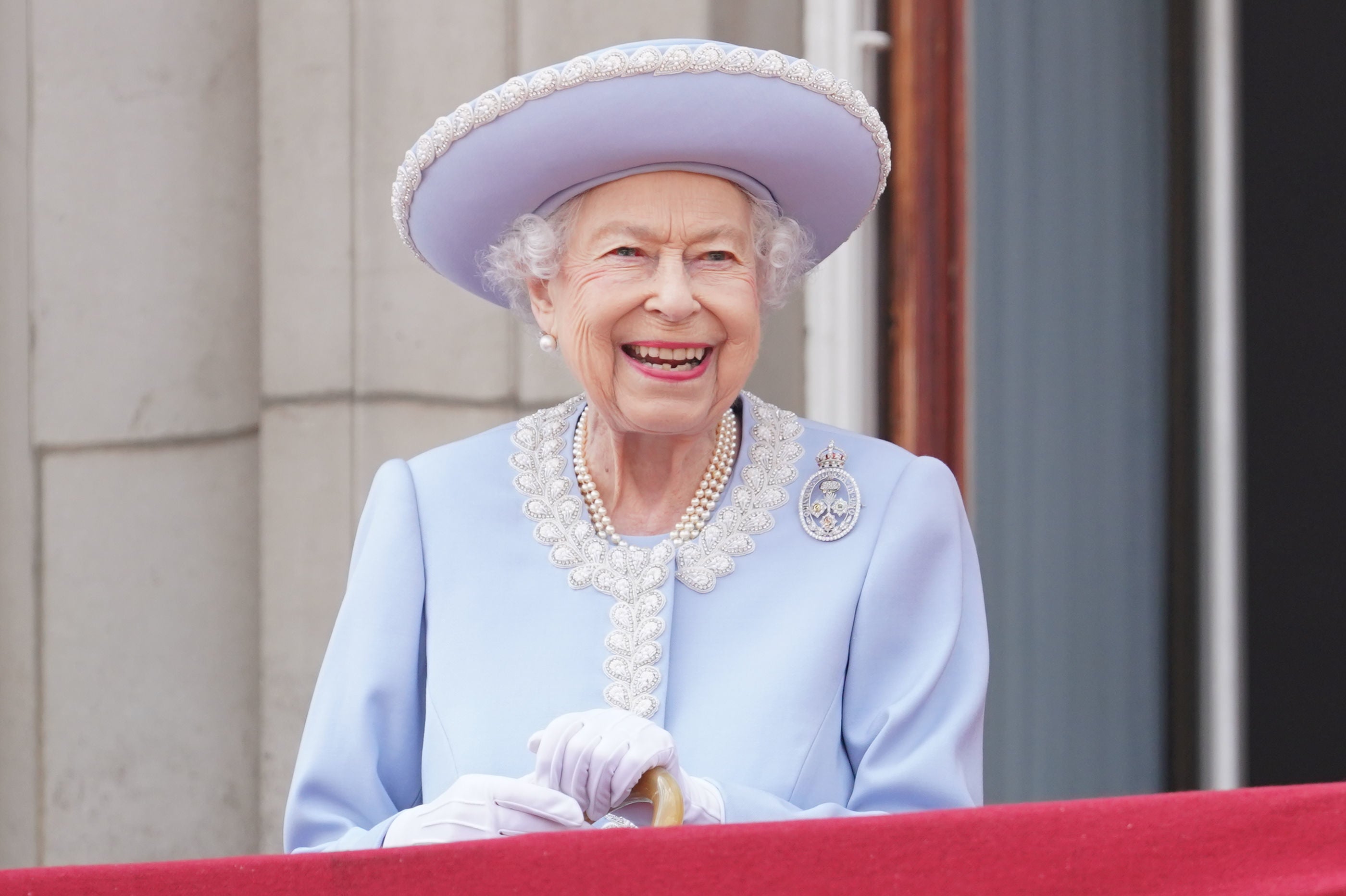The Independent's journalism is supported by our readers. When you purchase through links on our site, we may earn commission.
As an American, I think Queen Elizabeth II should apologize for racism at her Platinum Jubilee
Watching the royal family stay silent while Meghan Markle was attacked in the right-wing media was hard. But other countries have shown that progressive political moves often happen after apologies from heads of state. The queen could seize this opportunity to leave an even more powerful legacy

Meghan Markle is a role model and beacon of hope for many Black Americans. Her story resonated with me strongly — my mother is biracial, and Markle’s words about the racism she experienced felt sadly familiar. Watching the right-wing British media attack Markle, and then watching how the royal family stayed silent in the face of it, was a painful experience.
Now, on her Platinum Jubilee, Queen Elizabeth II has a chance to change things — by making a formal apology to the descendants of those exploited by Britain’s imperialist past.
As the longest-standing monarch in British history, the queen commands the respect of Brits and Americans alike. Indeed, it is no secret Americans care about the British monarchy and spend a lot of time watching them — from the 23 million Americans who watched the televised wedding of Prince William and Kate, to former President Obama telling Prince Charles that Americans love the monarchy more than their own politicians, to survey data showing that 68 percent of Americans have a favorable opinion of Queen Elizabeth. The queen making a formal apology for Britain’s colonial past would have an undeniable effect, rippling across nations. This is a golden opportunity for her to leave a powerful legacy that changes the world order.
A survey on public opinion also found that just over 60 percent of Brits are either proud or neutral about their colonial past. But the tides are turning. Instances ranging from the 2020 protesters dumping a statue of slave trader Edward Colston into the River Avon in solidarity with Black Lives Matter to Jamaican protests demanding reparations during Prince William and Duchess Middleton’s recent visit indicate that anti-imperialist social justice movements are becoming more and more prominent. Rather than ignoring such activists, Queen Elizabeth now has an opportunity to meet their concerns head-on — and to move the world in a new direction. After all, most of her family’s wealth was built on the backs of Black and brown people.
Ideally, a genuine apology from the queen should pay respect to lives lost serving in the British armed forces (one million Indian troops served on Britain’s behalf in the First World War, for instance); hours of forced labor; opportunity cost in building infrastructure; lost languages and cultural practices; and the extraction of natural resources. But even if it didn’t incorporate all of these elements, acknowledging slavery and its continuing effects today would start some vitally important conversations. I firmly believe that if the British queen openly addresses racism and the impacts of colonialism on today’s society, American politicians will be pushed to do so as well.
The US is failing to step up to lead due to its own internal gridlocking, and our next generation will inherit climate change, an increased risk of pandemics, and other issues that can only be solved with a cooperative and progressive global order. Apologies from heads of state are a great place to start. And history shows us that formal apologies do work and do change societies. Germany’s formal apology and condemnation of the Nazis after the Second World War is a powerful example of this — the nation now has some of the strongest anti-hate speech and anti-white supremacy laws in the world. German Criminal Code prohibits sharing Nazi symbols or sharing statements denying the Holocaust occurred. In 2008, Australia issued a formal apology to its Indigenous people for forcibly removing Indigenous children from their families and attempting to destroy Indigenous culture. And this year, the Canadian government — and the Pope — apologized for “cultural genocide” of First Nations peoples, particularly for placing First Nations children in boarding schools against their will that were aimed at erasing their cultural traditions and preventing them from speaking their first languages. Importantly, this Canadian apology led to action: $31.5 billion has since been put towards repairing Canada’s child welfare system and delivering reparations to the First Nations peoples who experienced abuse in that system.
In contrast, the Confederate was not removed from the official Mississippi state flag until 2020 — and although California unveiled the first ever slavery reparations report this week, momentum round the conversation seems to have slowed to a halt in DC.
Kimberlé Crenshaw’s Critical Race Theory explains how racism lies at the foundation of US social institutions, laws, and society, maintaining intergenerational lifelong inequality based on race. One practical way to deconstruct racism and to right those wrongs is to offer reparations to the descendants of slaves living in the US. The reparations process cannot be launched successfully without a common consensus that the descendants of imperialists and slave owners continue to reap the socioeconomic benefits.
An apology explicitly recognizing bias would force Americans and Brits alike to finally grapple with the ugly truth that racism has driven a lot of public policy in our nations. Centuries of imperialism were a collective action, but Queen Elizabeth has the world’s attention during her Jubilee, and she can utilize this to begin the transitional justice process. I hope she’ll take the opportunity.
Join our commenting forum
Join thought-provoking conversations, follow other Independent readers and see their replies
Comments
Bookmark popover
Removed from bookmarks